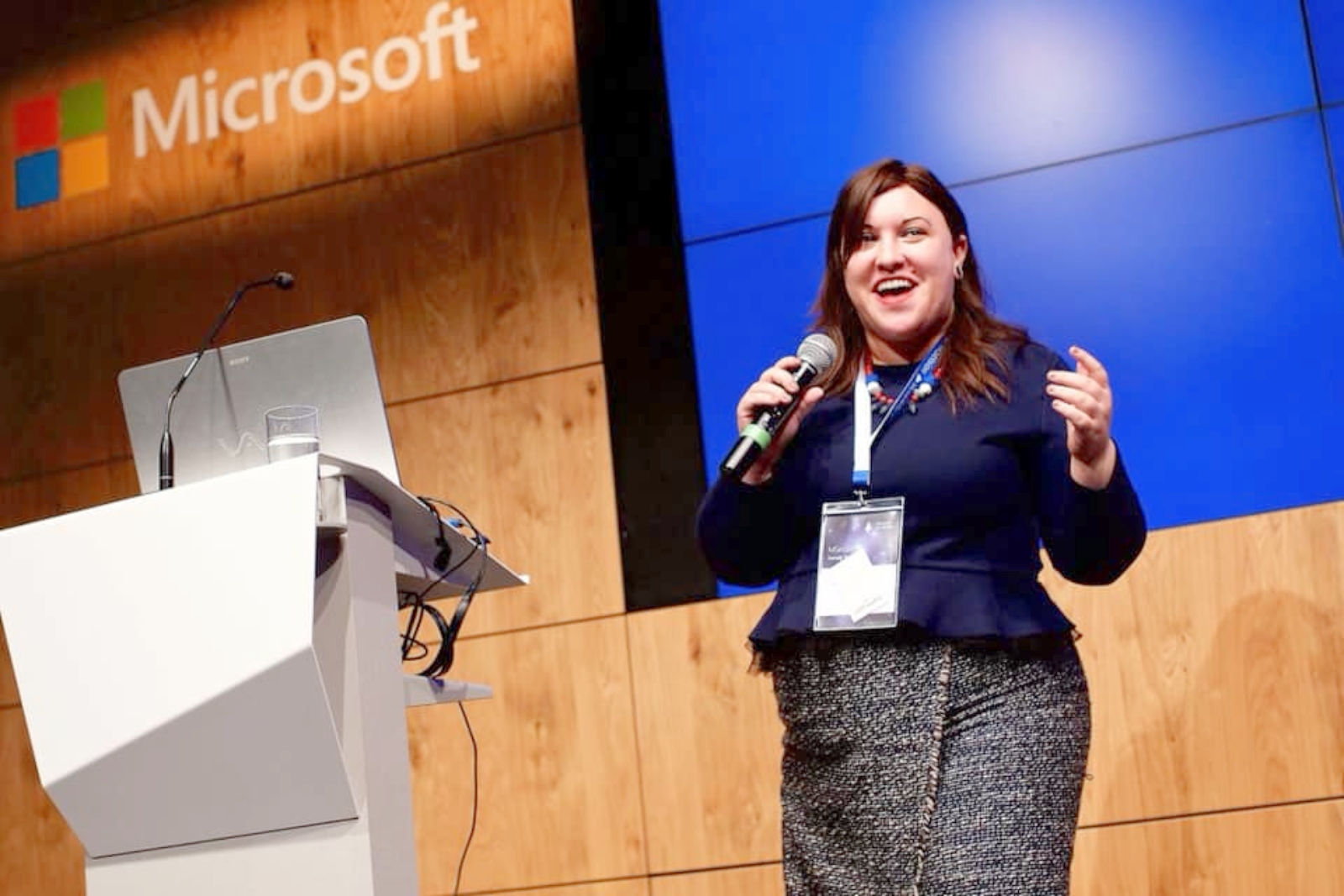Covid-19 has shaken up the job market worldwide. Some jobs (in tourism and hospitality) have simply evaporated while others (in cybersecurity and food delivery) are booming.
With so many employees either searching for work or a career change, human resource departments and recruitment agencies are busier than ever and operating mainly in virtual space.
Israeli technology has got HR managers covered with a growing ecosystem of startups that help jobseekers find their next gig and firms that streamline the onboarding process.
Once a candidate is on the job, can technology help keep the new hire satisfied and engaged? There’s an app for that, too.
ISRAEL21c looks at 11 intriguing HR technology companies based in Israel.
The pandemic has shifted everything to Zoom – and that includes job interviews. But if you’re a hiring manager, wading through hundreds of videos can be even more daunting than a stack of resumes.
myInterview uses machine learning to analyze video job interviews and ranks the most promising applicants. HR managers choose which questions to ask according to a template.
The software can understand not only specific skills but also whether a candidate would be a good fit for a company’s culture. myInterview has processed over 2 million videos for some 2,000 clients including Facebook, Six Flags and Chick-fil-A.
Video may be the future of recruiting, but resumes aren’t going away any time soon. ICV uses natural language processing to analyze every written word on a CV and then deliver a concise compatibility score.
ICV understands what candidates write about their skills, education and experience, then predicts who will be the best match for a company’s needs. Clients can upload all their job postings and ICV’s software will find the top 250 candidates who have submitted a resume.
Wonder how much you should pay a potential new employee? ICV has a list showing average salaries in Israel by job description. ICV has been dubbed by some the “Tinder for job seekers” due to its smart matching capabilities.
Another way to pre-screen applicants for a job posting is to let the bots do the talking first. Chatbots are bits of code that communicate in a way that mimics human interaction.
When an applicant applies for a job, Spetz engages with the candidate and records the conversation. Spetz then schedules an interview with the most relevant applicants. Spetz can be embedded in WhatsApp, Slack or Facebook Messenger.
Clients include Coca-Cola, Ernst & Young, SodaStream and Ikea. The Covid-19 crisis expanded Spetz’s sales “by tens of percent over the past few months,” Spetz CEO Yam Dvir notes, putting Spetz on the radar of companies including US recruiting AI platform Paradox, which acquired Spetz in January 2021. Spetz will be transformed into Paradox’s R&D center in Tel Aviv.
Reading through resumes (or having software do it) can only get you so far. Voicesense predicts who will be a good hire by listening to a 60-second audio clip of a candidate speaking in a first interview or a pre-screening call.
The company’s algorithms listen to intonation, pace and emphasis to create a job-match score and a detailed report of each candidate’s projected work tendencies.
Voicesense is language independent and can predict an employee’s “churn probability” – that is, how likely they are to leave the job. The tech can also help companies assess employee satisfaction on the job.
Voicesense also promotes its solution in non-HR areas: risk management, collections, sales conversion and mental health.
Traditional recruiting platforms tend to match candidates to opportunities based on titles or skills. But there’s more to a successful placement – factors such as team dynamics, fit with a potential boss and alignment with core values are all important.
Stellares uses artificial intelligence to understand a candidate’s personality, goals, work-life preferences, hobbies, passions and team compatibility. Stellares helps identify “passive” applicants who aren’t actively looking for a job.
Once Stellares has found a potential employee, it crafts and delivers a personalized pitch for that individual. Stellares claims that it can save companies between 50 and 90 hours of sourcing per hire. The company currently supports jobs in software engineering, data science, product management and design.
The Covid-19 crisis has pushed many workers to reconsider their career paths. But someone making a change may not have the resume to back up where he or she wants to go.
Israeli startup Skillset aims to change that by running potential candidates through industry-specific simulations meant to ferret out skills that might not be captured in the words of a CV. The company has received funding from Israel’s Bank Hapoalim.
Skillset’s online simulations allow candidates to virtually experience what it would be like to work in a particular position. Skillset says the simulation process reduces recruitment costs by 30 percent and gives candidates a 20% greater chance of landing their dream job.
Another advantage: traditional resume screening tends to exclude people with disabilities, people over 45-years-old, at-risk youth and ethnic minorities.
Once a company has made a hire, how does it keep new employees satisfied with their career path inside the company?
Gloat uses artificial intelligence to follow the achievements and aspirations of an employee, then proactively matches employees with in-house projects, gigs, mentorships and job swaps, allowing employees to gain new skills without seeking employment elsewhere.
It also provides managers additional insights into their teams’ needs. Gloat helps companies determine if there are employees within the company who might fit a particular job opening.
Gloat – formerly known as Workey – has customers in 120 countries, including big names such as Seagate, Deloitte, Unilever and ADP.

You’re new at the job and wondering about the corporate culture but you don’t know anyone yet to ask. Or you’re curious how another employee accomplished a project like the one you’ve just been assigned. Israeli startup Emerj built a machine-learning platform that allows employees to post questions anonymously.
“Nobody will see what you type. Privacy is our priority,” CEO Chedva Kleinhandler tells ISRAEL21c.
Tel Aviv-based Emerj targets companies with at least 1,000 employees and offers them a white-label platform where workers can tap into the knowledge, skills and experience of their coworkers. That’s especially important these days when gathering around the water cooler is impossible due to Covid-19, but it’s also useful for companies with offices dispersed around the world.
Employee retention was a problem before Covid-19, but the pandemic has exacerbated the phenomenon.
An August 2020 survey found that 58% of the American workforce feels burned out in light of the current remote work situation. But managers often have little experience in how to positively affect their employees’ wellbeing from afar.
Israeli startup Manto AI has developed a platform that monitors communication between employees and their managers – via emails, instant messaging tools, calendar invites and video conference platforms – and alerts managers when an employee needs a friendly intervention.
For example, “You haven’t spoken to Lisa for more than a week. Maybe you should check in.” Or “Over the past month, you’ve decreased the amount of ‘after hours’ communication by 20% – good job!” Companies can choose whether to have Manto AI “read” employee emails or to just access the metadata (time, date, frequency of interaction).
Some 36% of American workers are employed in the “gig economy” – that is, they are freelance or hourly workers. Startups helping freelancers find gigs – whether that’s a web design job or a job as an Uber driver – are booming, including in Israel where gig workforce management platform Ubeya raised $35 million just as Covid-19 was hitting our shores.
Ubeya helps event venues, catering companies, hospitality organizations, stadiums and retailers source, schedule, manage and pay hourly workers. Abuilt-in messaging tool allows companies to communicate with employees one-on-one or blast out group messages. On the creepier, side, GPS allows employers to see where their gig workers are on a map.
Since its founding in 2015, Ubeya has facilitated 390,000 job offers comprising more than 10 million working hours. Pricing starts as lows as $3 per employee per month.
When you have down time between work assignments, do you open Facebook, YouTube or Twitter? Eloops gives employees a reason to stay connected to the office by “gamifying” the HR experience.
The Eloops app allows employees to earn virtual coins as rewards for taking part in employer-sponsored surveys, quizzes, contests and in-house speaking engagements.
Employees can also earn coins by liking comments and sharing news about the organization. Coins can be exchanged for office swag, a one-on-one meeting with the CEO or, as Eloops customer Estee Lauder is offering, cold hard cash.
The company, founded in 2017, has about 30 customers including Coca-Cola, Hertz, Carlsberg and Israel’s Electricity Authority. The app can also list all company events in one location, and it allows employees to share photos and videos with the rest of the organization.















